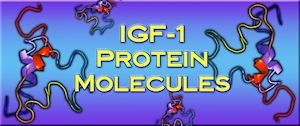Introduction to Low Testosterone
Low testosterone, or hypogonadism, is a condition where the body does not produce enough of the hormone testosterone. This condition can affect men of all ages but is more common as men grow older. Testosterone plays a crucial role in male development and health, influencing muscle mass, bone density, and the production of red blood cells, among other functions. When levels drop below normal, it can lead to a variety of symptoms, including decreased libido, fatigue, and mood changes.
The Prevalence of Low Testosterone
In the United States, low testosterone is increasingly recognized as a significant health issue. Studies suggest that approximately 2.1% of men over the age of 40 suffer from hypogonadism, with the prevalence increasing with age. This condition not only affects the individual's quality of life but also has broader implications for society, particularly in economic terms.
Economic Impact on Healthcare
The direct economic impact of low testosterone on the healthcare system is substantial. Men with low testosterone often require ongoing medical care, including regular check-ups, hormone replacement therapy, and management of related health issues such as osteoporosis and cardiovascular disease. The cost of testosterone replacement therapy alone can be significant, with annual expenses ranging from $500 to $1,500 per patient, depending on the type of treatment and insurance coverage.
Impact on Workforce Productivity
Beyond healthcare costs, low testosterone can have a profound effect on workforce productivity. Symptoms such as fatigue, decreased energy, and mood disturbances can lead to reduced work performance and increased absenteeism. A study published in the Journal of Clinical Endocrinology & Metabolism found that men with low testosterone levels were more likely to report work-related difficulties and had a higher rate of sick leave compared to their counterparts with normal testosterone levels. This not only affects individual earnings but also contributes to broader economic losses due to decreased productivity.
Social Security and Disability Claims
The economic impact of low testosterone extends to social security and disability claims. Men with severe symptoms may be unable to work, leading to increased claims for disability benefits. This places additional strain on social security systems, which are already under pressure due to an aging population. The indirect costs associated with these claims, including administrative expenses and lost tax revenue, further compound the economic burden of low testosterone.
The Broader Societal Impact
The societal impact of low testosterone goes beyond direct economic costs. The condition can affect family dynamics, with men experiencing low testosterone potentially struggling with their roles as partners and fathers. This can lead to increased stress and potential breakdowns in family units, which in turn can have long-term economic implications, such as increased costs related to social services and mental health support.
Addressing the Economic Challenge
To mitigate the economic impact of low testosterone, a multifaceted approach is necessary. This includes increasing awareness and education about the condition, improving access to affordable treatment options, and supporting research into more effective and cost-efficient therapies. Additionally, workplace policies that accommodate men with low testosterone, such as flexible working hours and health programs, can help reduce the economic burden by improving productivity and reducing absenteeism.
Conclusion
Low testosterone is more than just a health issue; it is an economic challenge that affects American men and society at large. By understanding the full scope of its impact, we can develop strategies to address this condition more effectively, ultimately reducing its economic toll and improving the quality of life for affected individuals.
Contact Us For A Fast And Professional Response

- Genetics and Testosterone: American Males' Predisposition and Health Implications [Last Updated On: February 19th, 2025] [Originally Added On: February 19th, 2025]
- Fueling Masculinity: Unleashing the Power of Testosterone [Last Updated On: February 25th, 2025] [Originally Added On: February 25th, 2025]
- Decoding Testosterone: Unraveling the Impact of the Master Hormone on Your Existence [Last Updated On: February 26th, 2025] [Originally Added On: February 26th, 2025]
- The Evolving Chronicle of Testosterone: A Voyage Through Time [Last Updated On: February 27th, 2025] [Originally Added On: February 27th, 2025]
- The Unexplored Power: Advantages of Optimum Testosterone Levels beyond Muscle Development [Last Updated On: February 28th, 2025] [Originally Added On: February 28th, 2025]
- Decoding the Testosterone Code: Dissecting Myths and Misconceptions [Last Updated On: February 28th, 2025] [Originally Added On: February 28th, 2025]
- Unveiling the Vital Role of Testosterone in Women's Health: A Comprehensive Overview [Last Updated On: March 1st, 2025] [Originally Added On: March 1st, 2025]
- Unraveling the Powerhouse of Vitality: The Definitive Guide to Understanding Testosterone [Last Updated On: March 1st, 2025] [Originally Added On: March 1st, 2025]
- Unlocking Male Vitality: A Dietary Approach to Elevating Testosterone Levels Naturally [Last Updated On: March 2nd, 2025] [Originally Added On: March 2nd, 2025]
- Enhancing Testosterone Production through Physical Activity: The Impact of Resistance Training and HIIT on Hormonal Health [Last Updated On: March 3rd, 2025] [Originally Added On: March 3rd, 2025]
- Understanding Testosterone's Impact on Male Confidence and Mental Health [Last Updated On: March 4th, 2025] [Originally Added On: March 4th, 2025]
- Understanding Testosterone's Role in Male Health and Strategies to Maintain Its Levels [Last Updated On: March 5th, 2025] [Originally Added On: March 5th, 2025]
- Comprehensive Guide to Testosterone: Importance, Functions, and Lifecycle in Men [Last Updated On: March 6th, 2025] [Originally Added On: March 6th, 2025]
- Optimizing Men's Health: Boost Testosterone Naturally Through Diet, Exercise, and Lifestyle Changes [Last Updated On: March 7th, 2025] [Originally Added On: March 7th, 2025]
- The Evolution of Testosterone Therapy: Innovations, Safety, and Future Potential for Men's Health [Last Updated On: March 8th, 2025] [Originally Added On: March 8th, 2025]
- Managing Testosterone Decline in Aging Men: Strategies for Vitality and Quality of Life [Last Updated On: March 9th, 2025] [Originally Added On: March 9th, 2025]
- Maximizing Masculine Vitality: The Crucial Role of Sleep in Testosterone Regulation [Last Updated On: March 12th, 2025] [Originally Added On: March 12th, 2025]
- Exploring the Horizon: The Future of Hormonal Health and Testosterone Research Trends [Last Updated On: March 13th, 2025] [Originally Added On: March 13th, 2025]
- Unraveling the Nexus of Stress, Cortisol, and Testosterone: A Guide to Hormonal Equilibrium for American Men [Last Updated On: March 13th, 2025] [Originally Added On: March 13th, 2025]
- Unleashing Athletic Potential: The Role of Testosterone in Performance Enhancement [Last Updated On: March 15th, 2025] [Originally Added On: March 15th, 2025]
- Testosterone's Impact on Mood, Memory, and Motivation in American Males [Last Updated On: March 17th, 2025] [Originally Added On: March 17th, 2025]
- Resistance Training Boosts Testosterone: A Guide for American Males [Last Updated On: March 18th, 2025] [Originally Added On: March 18th, 2025]
- Testosterone's Impact on Bone Density in American Males: Mechanisms and Management [Last Updated On: March 19th, 2025] [Originally Added On: March 19th, 2025]
- Testosterone's Crucial Role in Enhancing Immune Function in American Men [Last Updated On: March 19th, 2025] [Originally Added On: March 19th, 2025]
- Testosterone Health for American Males: Supplements, Lifestyle, and Medical Options [Last Updated On: March 19th, 2025] [Originally Added On: March 19th, 2025]
- Testosterone's Impact on Metabolism and Fat Burning in American Males [Last Updated On: March 20th, 2025] [Originally Added On: March 20th, 2025]
- Testosterone's Impact on Cardiovascular Health in American Men: Risks and Benefits [Last Updated On: March 20th, 2025] [Originally Added On: March 20th, 2025]
- Hormonal Balance in Men: Testosterone, Estrogen, and Beyond for Optimal Health [Last Updated On: March 20th, 2025] [Originally Added On: March 20th, 2025]
- Testosterone's Role in Enhancing Workplace Productivity and Drive in American Males [Last Updated On: March 21st, 2025] [Originally Added On: March 21st, 2025]
- Environmental Toxins and Their Impact on Men's Testosterone Levels: A Comprehensive Overview [Last Updated On: March 22nd, 2025] [Originally Added On: March 22nd, 2025]
- Testosterone's Role in Male Libido: Strategies to Boost Desire and Intimacy [Last Updated On: March 22nd, 2025] [Originally Added On: March 22nd, 2025]
- Testosterone's Vital Role in American Males' Cardiovascular Health and Fitness [Last Updated On: March 22nd, 2025] [Originally Added On: March 22nd, 2025]
- Low Testosterone in Men: Symptoms, Causes, and Effective Management Strategies [Last Updated On: March 22nd, 2025] [Originally Added On: March 22nd, 2025]
- Modern American Diet's Impact on Testosterone Levels and Mitigation Strategies [Last Updated On: March 22nd, 2025] [Originally Added On: March 22nd, 2025]
- Testosterone Revolution: Redefining Masculinity and Enhancing Men's Health in America [Last Updated On: March 23rd, 2025] [Originally Added On: March 23rd, 2025]
- Testosterone's Role in Muscle Recovery and Growth for American Males [Last Updated On: March 23rd, 2025] [Originally Added On: March 23rd, 2025]
- Testosterone's Impact on Cognitive Performance in American Males: A Comprehensive Analysis [Last Updated On: March 23rd, 2025] [Originally Added On: March 23rd, 2025]
- Optimizing Testosterone in American Men Through Positive Mental Strategies [Last Updated On: March 23rd, 2025] [Originally Added On: March 23rd, 2025]
- Meditation Boosts Testosterone: A Holistic Approach for American Males' Health [Last Updated On: March 23rd, 2025] [Originally Added On: March 23rd, 2025]
- Understanding Testosterone: Importance, Symptoms, and Managing Health Proactively [Last Updated On: March 24th, 2025] [Originally Added On: March 24th, 2025]
- Testosterone's Role in Sleep Quality: Strategies for American Men [Last Updated On: March 24th, 2025] [Originally Added On: March 24th, 2025]
- Understanding Testosterone: Levels, Factors, and Health Impacts for American Men [Last Updated On: March 24th, 2025] [Originally Added On: March 24th, 2025]
- Key Vitamins and Minerals Boosting Testosterone in American Males [Last Updated On: March 24th, 2025] [Originally Added On: March 24th, 2025]
- Testosterone's Impact on Body Image and Self-Esteem in American Men [Last Updated On: March 24th, 2025] [Originally Added On: March 24th, 2025]
- Boosting Testosterone: Diet, Exercise, Sleep, and Stress Management for American Men [Last Updated On: March 24th, 2025] [Originally Added On: March 24th, 2025]
- Testosterone's Impact on Mental Health in American Men: Depression, Anxiety, and Cognition [Last Updated On: March 24th, 2025] [Originally Added On: March 24th, 2025]
- Testosterone's Role in Longevity: Insights for American Males [Last Updated On: March 24th, 2025] [Originally Added On: March 24th, 2025]
- Creativity Boosts Testosterone: Music and Art's Role in Men's Health [Last Updated On: March 24th, 2025] [Originally Added On: March 24th, 2025]
- Testosterone and Chronic Diseases: Management Strategies for American Males [Last Updated On: March 24th, 2025] [Originally Added On: March 24th, 2025]
- Exploring Testosterone Replacement Therapy: Benefits, Risks, and Realities for American Males [Last Updated On: March 24th, 2025] [Originally Added On: March 24th, 2025]
- Declining Testosterone Levels in American Males: Trends, Causes, and Health Strategies [Last Updated On: March 24th, 2025] [Originally Added On: March 24th, 2025]
- Urban vs. Rural Living: Impacts on Testosterone Levels in American Males [Last Updated On: March 25th, 2025] [Originally Added On: March 25th, 2025]
- Andropause: Understanding Male Menopause and Testosterone's Role in American Men's Health [Last Updated On: March 25th, 2025] [Originally Added On: March 25th, 2025]
- Testosterone's Impact on Ambition and Success in American Males [Last Updated On: March 25th, 2025] [Originally Added On: March 25th, 2025]
- Outdoor Activities Boost Testosterone: A Natural Health Strategy for American Males [Last Updated On: March 25th, 2025] [Originally Added On: March 25th, 2025]
- Optimizing Testosterone: The Synergy of Rest and Nutrition for American Men [Last Updated On: March 26th, 2025] [Originally Added On: March 26th, 2025]
- Intermittent Fasting: Boosting Testosterone Levels in American Men [Last Updated On: March 26th, 2025] [Originally Added On: March 26th, 2025]
- Testosterone's Impact on Mental Resilience in American Men: Strategies and Insights [Last Updated On: March 26th, 2025] [Originally Added On: March 26th, 2025]
- Testosterone's Influence on Risk-Taking in American Males: Biological and Social Factors [Last Updated On: March 26th, 2025] [Originally Added On: March 26th, 2025]
- Testosterone Research Journey: From Lab to Clinic, Enhancing American Males' Health [Last Updated On: March 26th, 2025] [Originally Added On: March 26th, 2025]
- Digital Tools Revolutionize Testosterone Monitoring for American Males [Last Updated On: March 26th, 2025] [Originally Added On: March 26th, 2025]
- Testosterone's Impact on Athletic Performance: Myths, Facts, and Future Research for American Males [Last Updated On: March 26th, 2025] [Originally Added On: March 26th, 2025]
- Balancing Work and Health: Strategies for American Men to Maintain Testosterone Levels [Last Updated On: March 27th, 2025] [Originally Added On: March 27th, 2025]
- Hormonal Health and Testosterone: Vital Insights for American Men's Well-being [Last Updated On: March 27th, 2025] [Originally Added On: March 27th, 2025]
- Social Interactions Impact Testosterone Levels in American Males: A Comprehensive Study [Last Updated On: March 27th, 2025] [Originally Added On: March 27th, 2025]
- Boost Testosterone Naturally with Resistance Band Workouts for American Men [Last Updated On: March 28th, 2025] [Originally Added On: March 28th, 2025]
- Gut Health's Impact on Testosterone Levels in American Males: A Comprehensive Overview [Last Updated On: March 28th, 2025] [Originally Added On: March 28th, 2025]
- Personalized Medicine Revolutionizes Testosterone Therapy for American Males [Last Updated On: March 30th, 2025] [Originally Added On: March 30th, 2025]
- Revolutionizing Male Health: Advanced Technologies in Testosterone Optimization [Last Updated On: March 30th, 2025] [Originally Added On: March 30th, 2025]
- Testosterone's Impact on Male Skin, Hair, and Aesthetic Health Management [Last Updated On: March 31st, 2025] [Originally Added On: March 31st, 2025]
- Testosterone's Dual Impact on Immune Health in American Men: Suppression and Protection [Last Updated On: March 31st, 2025] [Originally Added On: March 31st, 2025]
- Testosterone and Body Composition: Optimizing Health for American Males [Last Updated On: April 2nd, 2025] [Originally Added On: April 2nd, 2025]
- Testosterone's Comprehensive Impact on Men's Sexual Health and Well-being [Last Updated On: April 4th, 2025] [Originally Added On: April 4th, 2025]
- Alcohol and Smoking: Impacts on Testosterone Levels in American Males [Last Updated On: April 4th, 2025] [Originally Added On: April 4th, 2025]
- Acupuncture's Role in Enhancing Testosterone Levels in American Men: A Comprehensive Overview [Last Updated On: April 5th, 2025] [Originally Added On: April 5th, 2025]
- HIIT Boosts Testosterone: Optimal Fitness Strategy for American Males [Last Updated On: April 7th, 2025] [Originally Added On: April 7th, 2025]
- Mindful Living Boosts Testosterone: Meditation, Yoga, Sleep, Nutrition, and Exercise for American Men [Last Updated On: April 9th, 2025] [Originally Added On: April 9th, 2025]
- Exploring Testosterone Boosters: Efficacy, Types, and Safe Usage for American Men [Last Updated On: April 9th, 2025] [Originally Added On: April 9th, 2025]
- Testosterone's Role in Social Dominance and Evolutionary Biology for American Males [Last Updated On: April 9th, 2025] [Originally Added On: April 9th, 2025]
- Seasonal Testosterone Fluctuations in American Males: Causes and Management Strategies [Last Updated On: April 9th, 2025] [Originally Added On: April 9th, 2025]

















